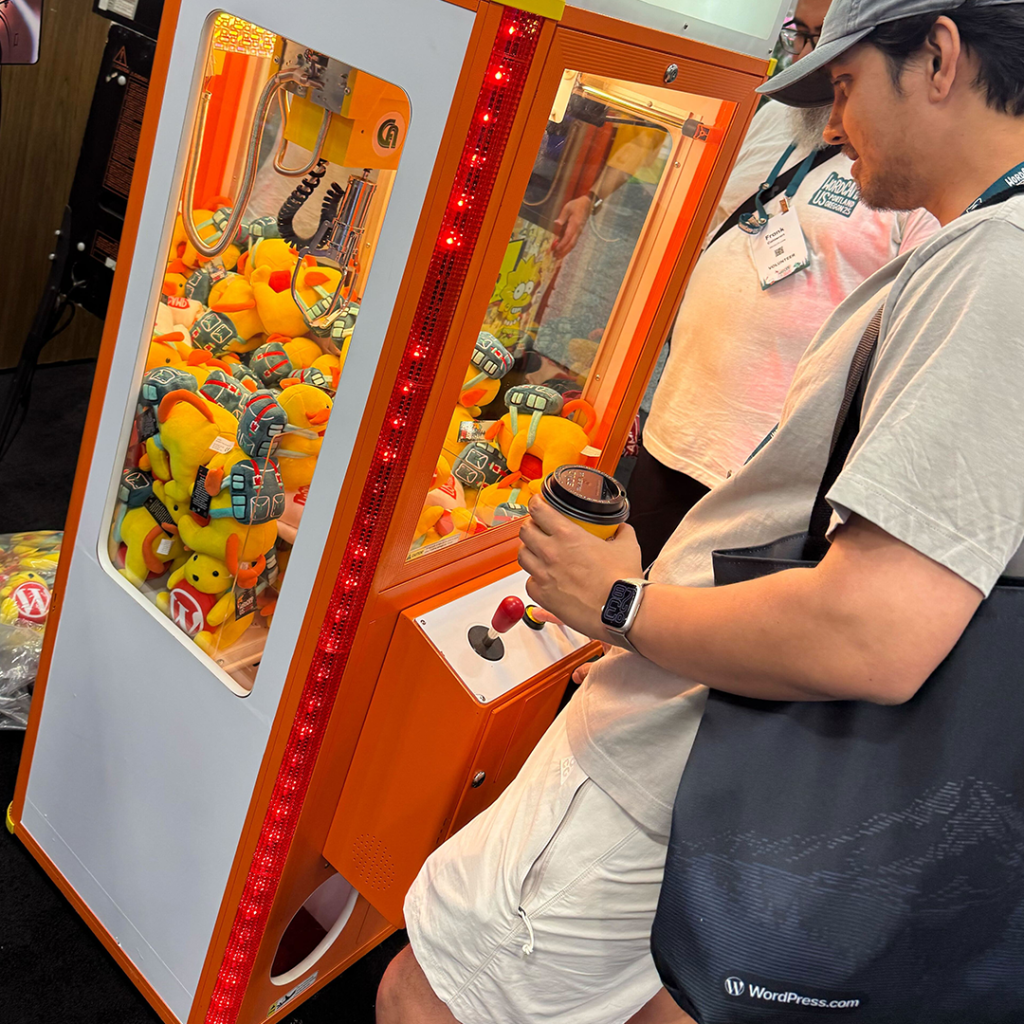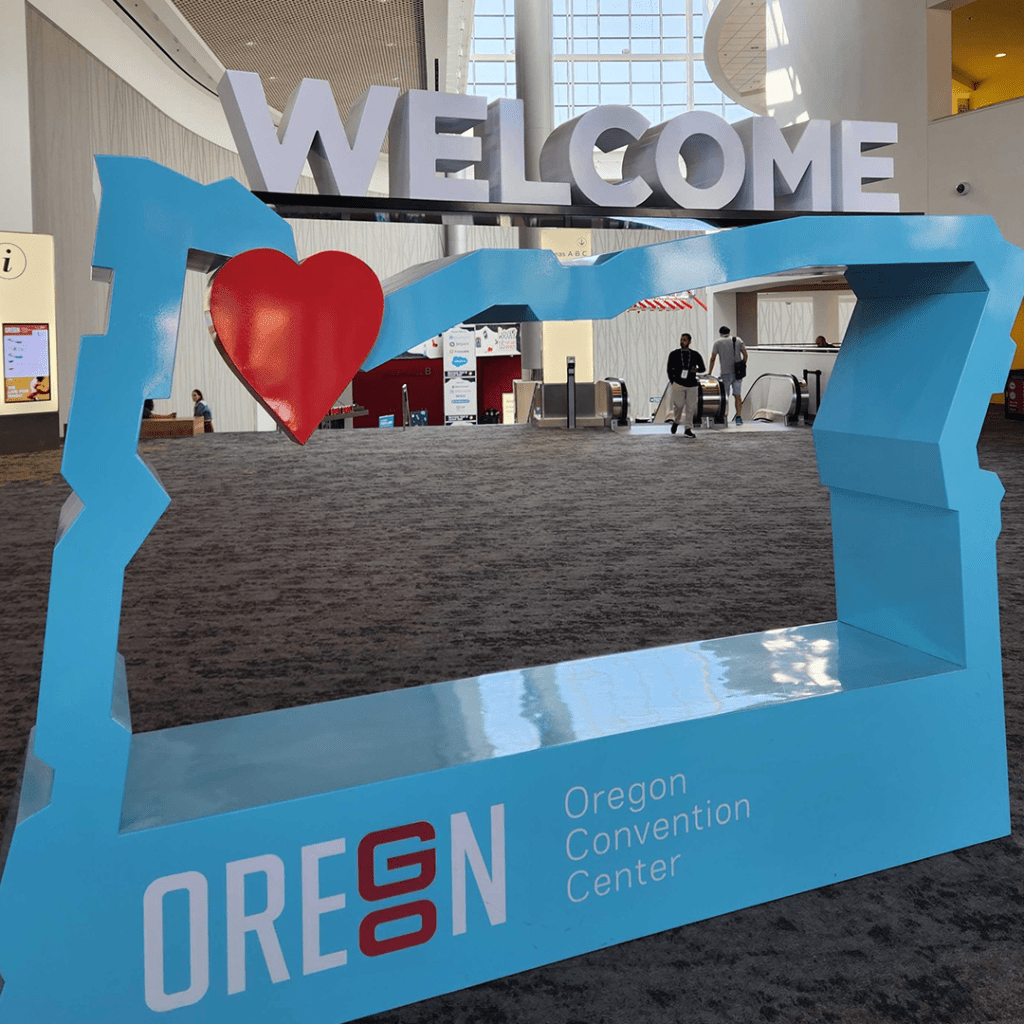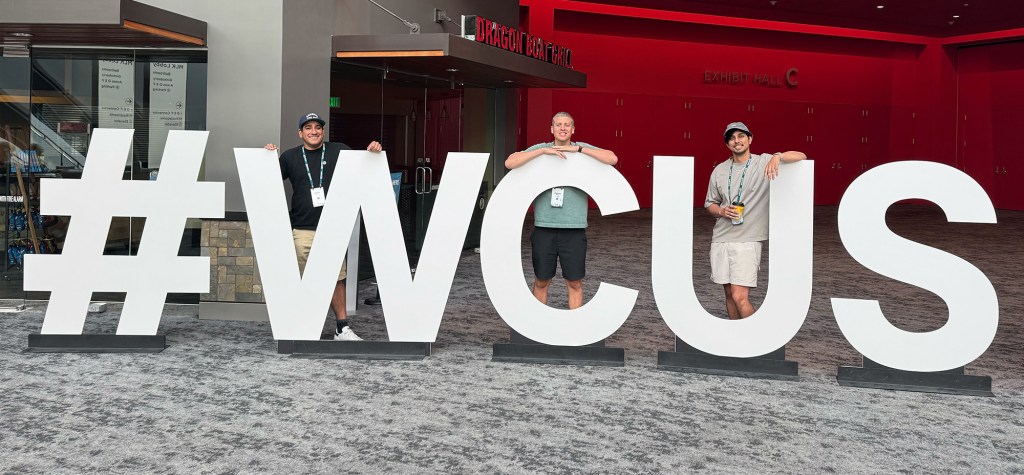Some events feel like a reset. WordCamp US 2025 in Portland was one of those moments. Four days surrounded by people who care deeply about the web — its future, its openness, and its human side — offered not just updates and announcements but a shift in perspective.
There were packed rooms, hallway conversations, ambitious product demos, and quiet contributor wins. Whether during a keynote or over coffee, the atmosphere felt equal parts focused and generous.
More than anything, WCUS was a reminder that WordPress doesn’t move on its own. It’s the community, showing up and building together, that keeps it moving.
What Happened Over Four Days
Contributor Day
Contributor Day opened with energy: nearly 300 participants, including more than 120 first-timers, split across 19 teams. Beyond commits and docs updates, mentors onboarded new contributors, table leads guided focus, and remote folks joined via dedicated channels. The day closed with tangible outcomes: over 12,000 strings translated by Polyglots, two new meetups approved by the Community team, training assets refreshed, a live bug scrub with nine committers and sixteen contributors, and numerous documentation fixes.
Showcase Day
The new Showcase Day format underlined how WordPress gets used in the wild. Amy Sample Ward opened with The Tech That Comes Next, challenging the community to confront inequities in today’s technology and to imagine an equitable digital future. Sessions then moved through enterprise-scale case studies and practical demos. Highlights included Joeleen Kennedy (Human Made) on how Full Site Editing supports Wikimedia’s ongoing UX refresh, and Josh Bryant (Dow Jones) on embedding Gutenberg in a standalone React app to power newsroom workflows.
Session Days
Thursday’s opening keynote from Google’s Danny Sullivan unpacked how search continues to evolve with mobile behaviours, short-form video, and AI-inflected discovery, reinforcing that content should be created for people first.
Across tracks, the Core AI panel (James LePage, Felix Arntz, and Jeffrey Paul) outlined how AI tooling intersects with WordPress core while staying transparent and user-empowering. Friday began with John Maeda’s creative keynote framing AI in approachable, practical terms, followed by sessions on design systems (Tammie Lister) and developer superpowers with AI (Adam Silverstein).
Between talks, the Sponsor Hall carried real momentum, featuring raffles, the return of Career Corner, a Happiness Bar, a Wapuu claw machine, an arcade, and even a Voodoo Donut truck outside, making the hallway track as valuable as the formal program.



Themes That Defined WCUS 2025
AI—with guardrails
AI starred across keynotes and sessions, but always with an emphasis on autonomy and ethics. The Core AI panel and live demos positioned AI as a co-pilot for creativity and contribution: transparent, opt-in, and productivity-focused.
Full Site Editing maturity and UX focus
Talks and case studies showed FSE as production-ready at scale, with better internationalization, design-system thinking, and editor ergonomics like the upcoming Command Palette.
Performance and enterprise adoption
Sessions focused on performance and system architecture highlighted WordPress’s expanding role in the enterprise, with teams pushing scale, security, and maintainability.
Matt Mullenweg’s Closing Keynote
WordCamp US traditionally closes with Matt Mullenweg taking the stage, and 2025 kept that tradition alive in Portland. His keynote combined reflection, data points on WordPress’s growth, previews of what’s next, and an open-floor Q&A with the community.
State of WordPress Today
Mullenweg celebrated momentum across the project. WordPress.org has seen a surge in traffic, new user accounts jumped nearly 20% year over year, and the plugin review queue that once stretched for months now moves in just a few days. Social reach is also expanding, with more than 124,000 new followers added since the last WCUS. These stats, he stressed, are not just numbers but signs of a healthier, more engaged ecosystem.
Features on the Horizon
Two core features stood out in his preview of what’s coming:
- Block Comments, a system that allows more dynamic, contextual discussions around content.
- Command Palette, a streamlined way to speed up workflows inside the dashboard.
Both features reflect an ongoing investment in user experience and editor capabilities, with more announcements expected as WordPress 6.9 approaches.
AI in WordPress
Mullenweg acknowledged the AI theme woven throughout WCUS. He highlighted experiments like the Telex tool for AI-generated block patterns. His framing was clear: AI should augment the work of site builders and creators, not replace their voice or autonomy.
Future WordCamps
Looking beyond Portland, Mullenweg announced the next flagship destinations:
- WordCamp Asia 2026 in Mumbai, India
- WordCamp Europe 2026 in Kraków, Poland
- WordCamp US 2026 in Phoenix, Arizona
Q&A With the Community
Mullenweg’s keynote unfolded as a conversation with the community. Attendees asked about AI ethics, accessibility, the contributor experience, and the longevity of open-source values. His responses often returned to the same theme: WordPress is more than just a platform. It thrives as a people-powered movement whose strength lies in openness, inclusivity, and adaptability.
Inclusion, Access, and Reach
A milestone at this year’s WordCamp US was the debut of the Open Horizons Scholarship, which provided $14,670 in funding to support six recipients from five countries. Among them were organizers, volunteers, and a speaker—each given the opportunity to attend the flagship event. The programme also extends to WordCamp Asia and WordCamp Europe, reinforcing a broader commitment to lowering barriers for underrepresented groups.
Attendance underscored that reach. The Oregon Convention Center welcomed a full house, while thousands more joined online. Beyond the flagship itself, initiatives like Campus Connect are building momentum for the next generation, having already engaged 570 students across 11 events. Coupled with 77 WordPress events hosted worldwide in 2025, a 33% increase over the previous year, these efforts demonstrate a community not only growing in numbers but also strengthening its inclusivity and accessibility.
What’s Next: All Roads Lead to WordCamp Canada
WordCamp US 2025 showcased a project and a community that is comfortable with complexity: pragmatic about AI, confident in Full Site Editing, and intentional about inclusion.
Next up is WordCamp Canada 2025, taking place from October 15 to 17 in Ottawa. Richcraft Hall at Carleton University will host the main conference, with Contributor Day kicking off at Bayview Yards, complete with mentorship tracks for first-time contributors and alignment with WordPress Accessibility Day.
The speaker lineup reflects a forward-looking focus. Keynotes include Evan Prodromou on federated publishing, Dave Winer on open protocols and ownership, and Jill Binder on what diversity looks like in practice, informed by work in 50 countries.
Trew Knowledge will also take the stage to present how we helped Edutopia implement a real-time, AI-powered content recommendation engine using WordPress, Neo4j, OpenAI, and AWS. The session breaks down the data flow, architecture, and editorial outcomes of delivering hyper-personalized content in the education space, showing what’s possible when open-source tools meet purposeful design.
With sessions spanning performance, developer tools, interactivity, and editorial workflows, WordCamp Canada 2025 promises depth, pragmatism, and vision. And with Ottawa’s fall colours along the Rideau Canal setting the scene, the next chapter in the WordPress journey already feels like something to look forward to.
Hope to see you there. 🇨🇦


